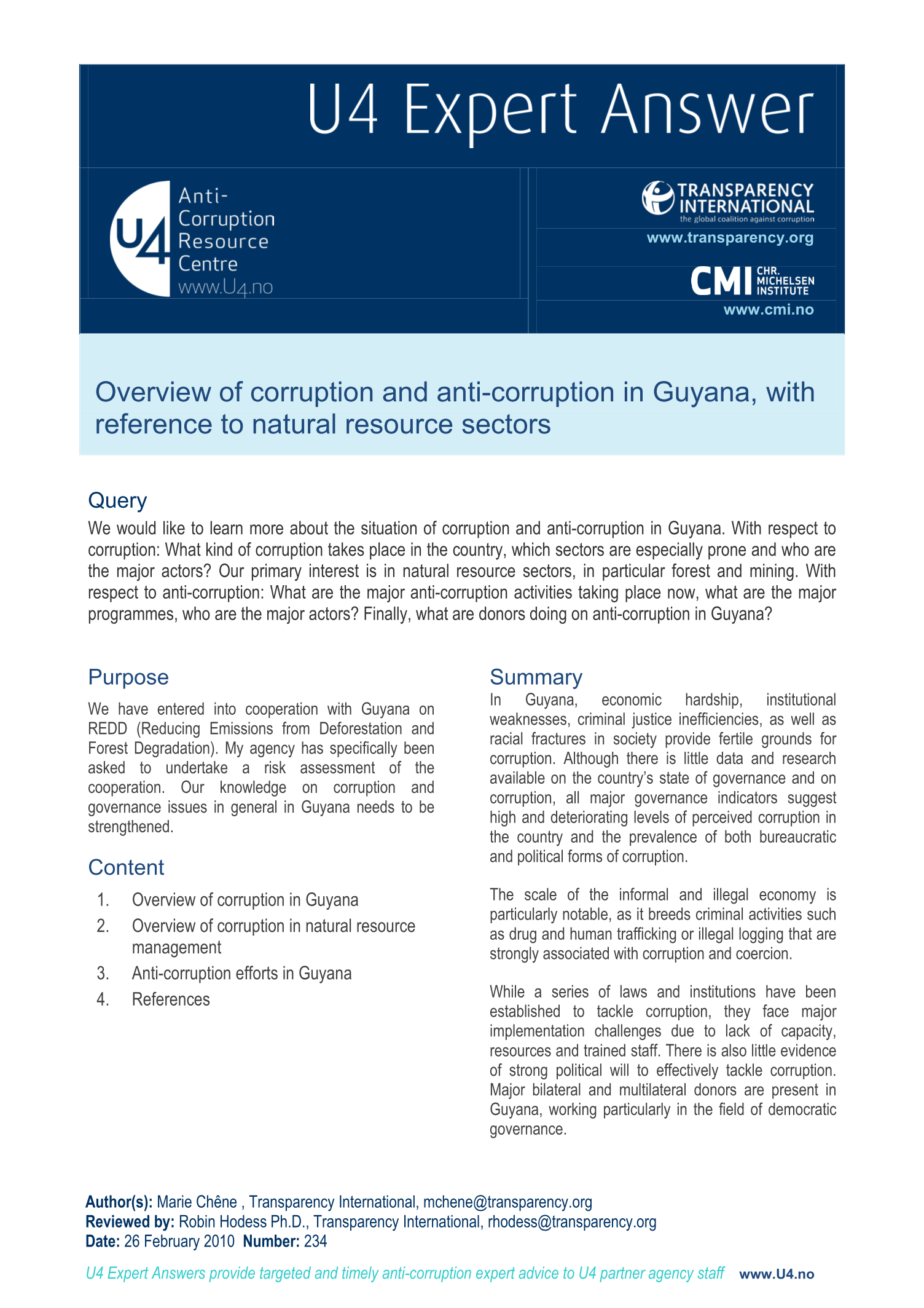U4 Helpdesk Answer
Overview of corruption and anti-corruption in Guyana, with reference to natural resource sectors
In Guyana, economic hardship, institutional weaknesses, criminal justice inefficiencies, as well as racial fractures in society provide fertile grounds for corruption. Although there is little data and research available on the country’s state of governance and on corruption, all major governance indicators suggest high and deteriorating levels of perceived corruption in the country and the prevalence of both bureaucratic and political forms of corruption. The scale of the informal and illegal economy is particularly notable, as it breeds criminal activities such as drug and human trafficking or illegal logging that are strongly associated with corruption and coercion. While a series of laws and institutions have been established to tackle corruption, they face major implementation challenges due to lack of capacity, resources and trained staff. There is also little evidence of strong political will to effectively tackle corruption.

Cite this publication
(2010) Overview of corruption and anti-corruption in Guyana, with reference to natural resource sectors. Bergen: U4 Anti-Corruption Resource Centre, Chr. Michelsen Institute (U4 Helpdesk Answer null)
Disclaimer
All views in this text are the author(s)’, and may differ from the U4 partner agencies’ policies.
This work is licenced under a Creative Commons Attribution-NonCommercial-NoDerivatives 4.0 International licence (CC BY-NC-ND 4.0)